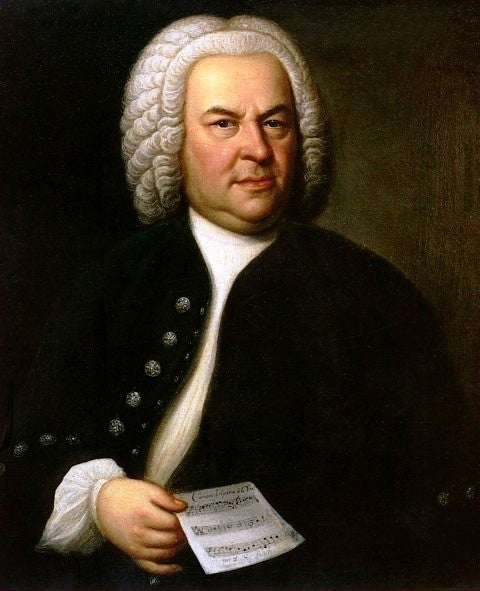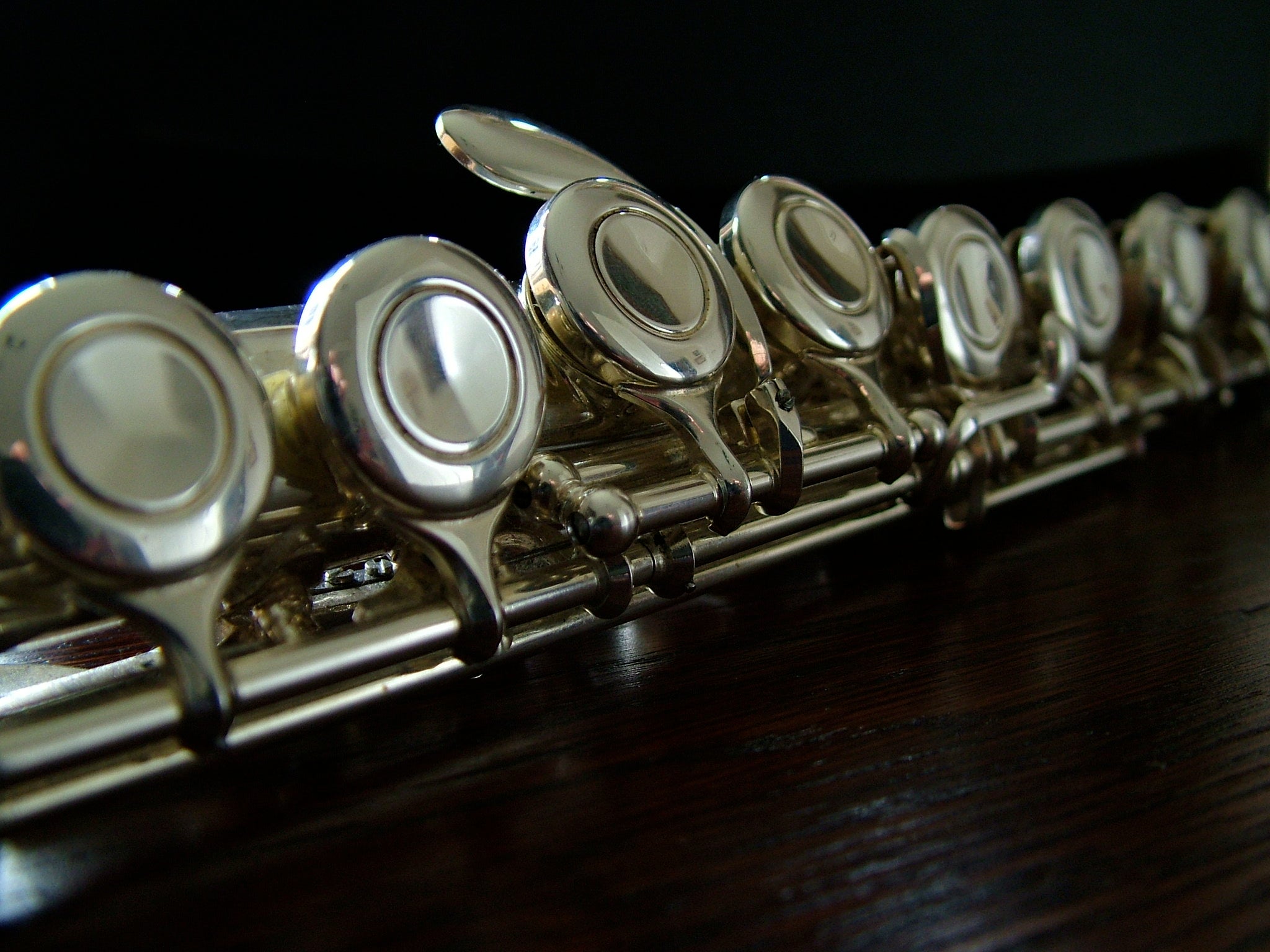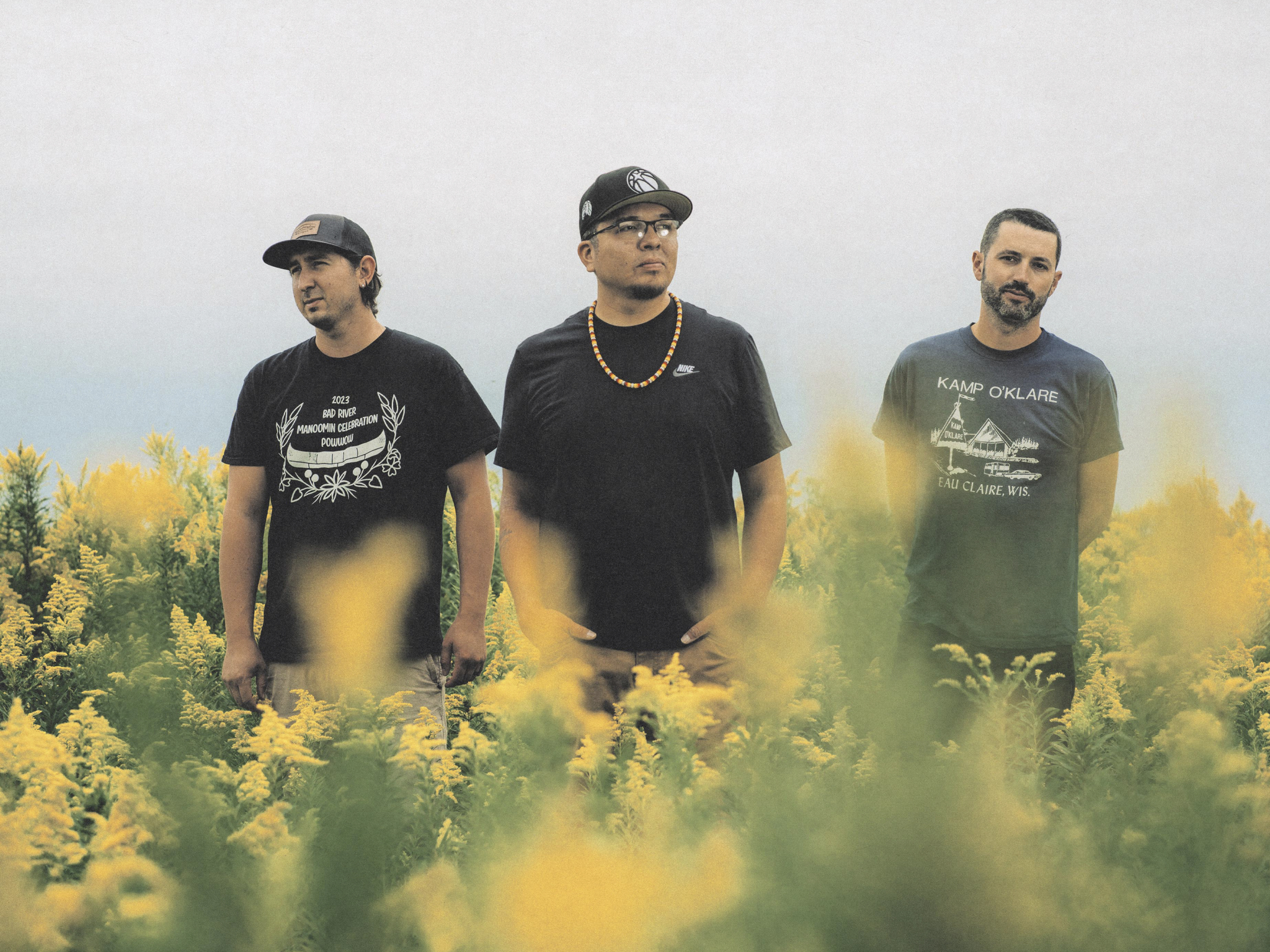By 1740, when Carl Philipp Emanuel Bach went to Pottsdam to work for King Frederick the Great, his father, Johann Sebastian Bach, was famous throughout Europe, and King Frederick grew increasingly eager to meet the man known as “the Old Bach.”
In 1747 Johann Sebastian Bach, age 62, finally left Leipzig and made the journey to Pottsdam with his eldest son, Wilhelm Friedemann. The king was in the habit of holding private concerts every night, during which he would solo in the performance of flute concertos. One evening as the king and his musicians were all ready to play, an officer of the court brought the king a list of guests. Flute in hand, the king scanned the list and turned excitedly to his musicians saying, “Gentlemen, old Bach has arrived.”
The king set his flute down and sent a messenger to Wilhelm Friedemann’s lodgings, summoning old Bach to the palace. The evening’s concert was set aside for the sake of inviting Bach senior to play the king’s fortepianos. The musicians followed Bach from room to room as he extemporized on each keyboard. After awhile Bach asked the king to give him a theme for a fugue to be improvised on the spur of the moment.
Stay informed on the latest news
Sign up for WPR’s email newsletter.
After obliging and admiring the resulting fugue, the king asked for a fugue with six obbligato parts. But Bach found the king’s theme not quite suitable for such rich harmonizing, Bach chose one of his own and developed it into a complex fugue that amazed everyone.
The next day Bach worked his keyboard magic on every one of the organs in Pottsdam.
When he got back home to Leipzig, he took the king’s theme, added several complex pieces in canon form on the subject and had the impressive collection engraved and dedicated to the king under the modest title
Wisconsin Public Radio, © Copyright 2025, Board of Regents of the University of Wisconsin System and Wisconsin Educational Communications Board.





